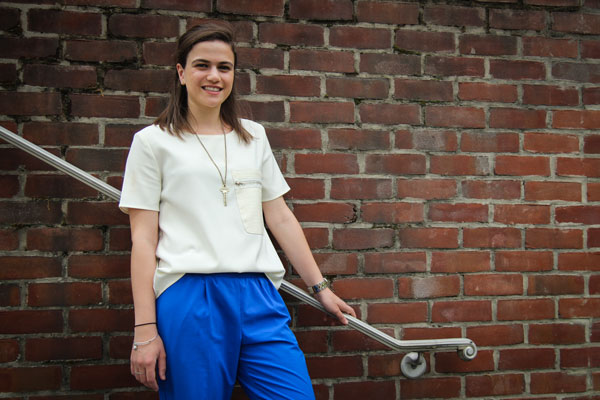The Class of 2016 has a new incentive to reach their senior class gift goal.
A parent and alumnus pledged to donate $10,000 to the University if graduating seniors make 250 new donations to the senior class gift before the end of April. The leaders of the senior class gift campaign said this new pledge will help the class hit their record 62 percent participation goal.
The donor, Daniel Serota, graduated in 1986 with a bachelor’s degree in business and is now the mayor of Brookville, N.Y. In an email to the graduating class last week, Serota asked students to meet the demands of his challenge by donating by the end of the month.
“As a proud alumnus and GW parent, I am thrilled to see the Class of 2016’s dedication to helping the next generation of Colonials through the Senior Class Gift Campaign,” he said in the email.
Serota declined to comment for this story.
Juman Kekhia, senior class gift campaign coordinator, said Serota’s challenge will drive more students to give but won’t be the only cause for the campaign’s success.
“His contribution will definitely add sizably to our pool, but it will not be a tipping point,” she said. “Our seniors have already done so much on their own. More importantly, the challenge will be a great incentive to encourage further student donation and to bring the senior class together.”
Kekhia said she believes seniors will complete Serota’s challenge. While she declined to provide the exact percentage of participation as of last week, she said the class is on its way to reaching the participation goal.
Last year’s graduating seniors set multiple records, raising $128,000 with a 60 percent participation rate. This year’s attempt at 62 percent participation would be the highest in recent history.
Kekhia said she expects many graduating seniors will donate in the final weeks before graduation.
“We are hoping that in the end, seniors will adopt a ‘no day like today’ policy,” Kekhia said. “We think they will ultimately realize the impact their contributions can make on their own departments and student organizations.”
She added that she and other campaign coordinators have arranged multiple senior-only events like ice cream socials and happy hours to encourage students who hadn’t yet given to donate. She said the annual senior toast the week of Commencement will also push students to contribute because the event is exclusively for those who participate in the campaign.
Serota is the latest in a string of alumni who have pledged gifts to bolster giving rates in the senior class gift campaign. Last year, an anonymous alumni donor matched all gifts up to $3,000, and from 2010 to 2013, the current Chair of the Board of Trustees Nelson Carbonell and his wife matched students’ donations.
During this month’s Flag Day, an Elliott School alumnus promised a $100,000 donation that was unlocked after 12,000 alumni made donations since the start of the fiscal year.
Michael Sinkus, a senior consultant at the philanthropy firm Marts & Lundy, said challenges like Serota’s are highly successful in motivating donors.
“These are very common, and they almost always work,” Sinkus said. “They tend to instill the desire to give back to the university and the habit of giving back to the university.”
But Sinkus said this particular goal could be difficult to reach. He said while he has rarely seen donation challenges fail, the last-minute nature of this challenge might make it too demanding for seniors to complete.
“Two-hundred and fifty people, that’s a lot of seniors to compel to donate so late in a donation cycle,” he said.
Sinkus said the challenge would be more effective at engaging students than a traditional matching gift because unlocking the donation depends on student involvement, not the amount they each donate.
“At this juncture, it’s probably better to get more people on board as this donor is intending, than to turn a $100 gift into $200,” Sinkus said. “If you look at a student’s lifetime, people who graduate now are going to live another 80 years. It’s better to play the long game to get people on board.”







